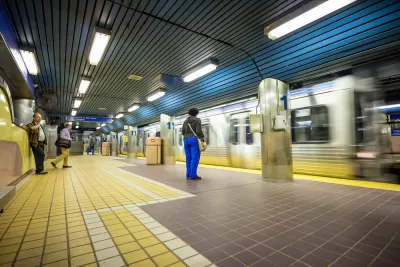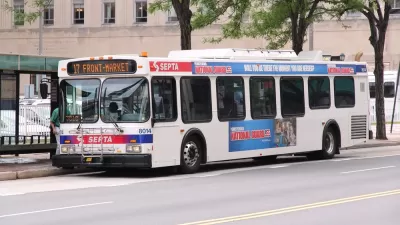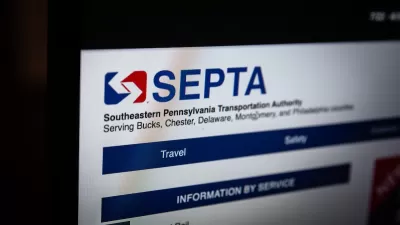The city’s upcoming budget doesn’t include the Zero Fare program, which offers free SEPTA fare to more than 24,000 residents.

Philadelphia Mayor Cherelle Parker omitted the city’s innovative free transit program from its upcoming budget, signaling a potentially abrupt end for a program that awarded free transit fare cards to over 24,000 qualifying low-income residents.
As Kea Wilson explains in Streetsblog USA, the program was the first of its kind in that it identified people who qualified based on other received benefits and sent them unlimited transit fare cards without making them go through an application process.
Of the more than 24,000 people who received that golden ticket as part of the initial two-year, $62-million pilot, the regional transit agency, SEPTA, says 64 percent are still riding today — a rate which proponents call “phenomenal” for a program that some feared would struggle to locate riders grappling with housing insecurity, or who might not believe their good fortune and just chuck their free cards in the trash.
According to Wilson, “A 2023 study showed that free transit doesn't significantly impact household earnings for low-income people, but it does ‘improve individuals’ well-being, and in particular health,’ which can have downstream economic benefits for public health systems, not to mention individuals' ability to access child care, medical care, or even simple quality time with family and friends.” Philadelphia transit advocates say extending the Zero Fare program would help improve SEPTA’s ridership and encourage other ‘choice’ riders who can afford fares but choose to drive to use transit instead.
FULL STORY: Is Philadelphia About to Eliminate America’s Best Free Transit Program?

Study: Maui’s Plan to Convert Vacation Rentals to Long-Term Housing Could Cause Nearly $1 Billion Economic Loss
The plan would reduce visitor accommodation by 25,% resulting in 1,900 jobs lost.

North Texas Transit Leaders Tout Benefits of TOD for Growing Region
At a summit focused on transit-oriented development, policymakers discussed how North Texas’ expanded light rail system can serve as a tool for economic growth.

Why Should We Subsidize Public Transportation?
Many public transit agencies face financial stress due to rising costs, declining fare revenue, and declining subsidies. Transit advocates must provide a strong business case for increasing public transit funding.

How to Make US Trains Faster
Changes to boarding platforms and a switch to electric trains could improve U.S. passenger rail service without the added cost of high-speed rail.

Columbia’s Revitalized ‘Loop’ Is a Hub for Local Entrepreneurs
A focus on small businesses is helping a commercial corridor in Columbia, Missouri thrive.

Invasive Insect Threatens Minnesota’s Ash Forests
The Emerald Ash Borer is a rapidly spreading invasive pest threatening Minnesota’s ash trees, and homeowners are encouraged to plant diverse replacement species, avoid moving ash firewood, and monitor for signs of infestation.
Urban Design for Planners 1: Software Tools
This six-course series explores essential urban design concepts using open source software and equips planners with the tools they need to participate fully in the urban design process.
Planning for Universal Design
Learn the tools for implementing Universal Design in planning regulations.
City of Santa Clarita
Ascent Environmental
Institute for Housing and Urban Development Studies (IHS)
City of Grandview
Harvard GSD Executive Education
Toledo-Lucas County Plan Commissions
Salt Lake City
NYU Wagner Graduate School of Public Service





























